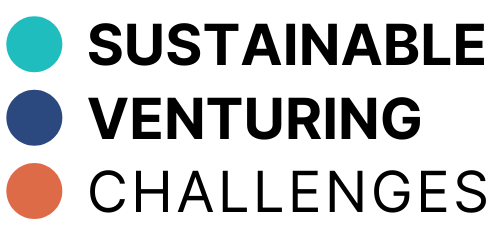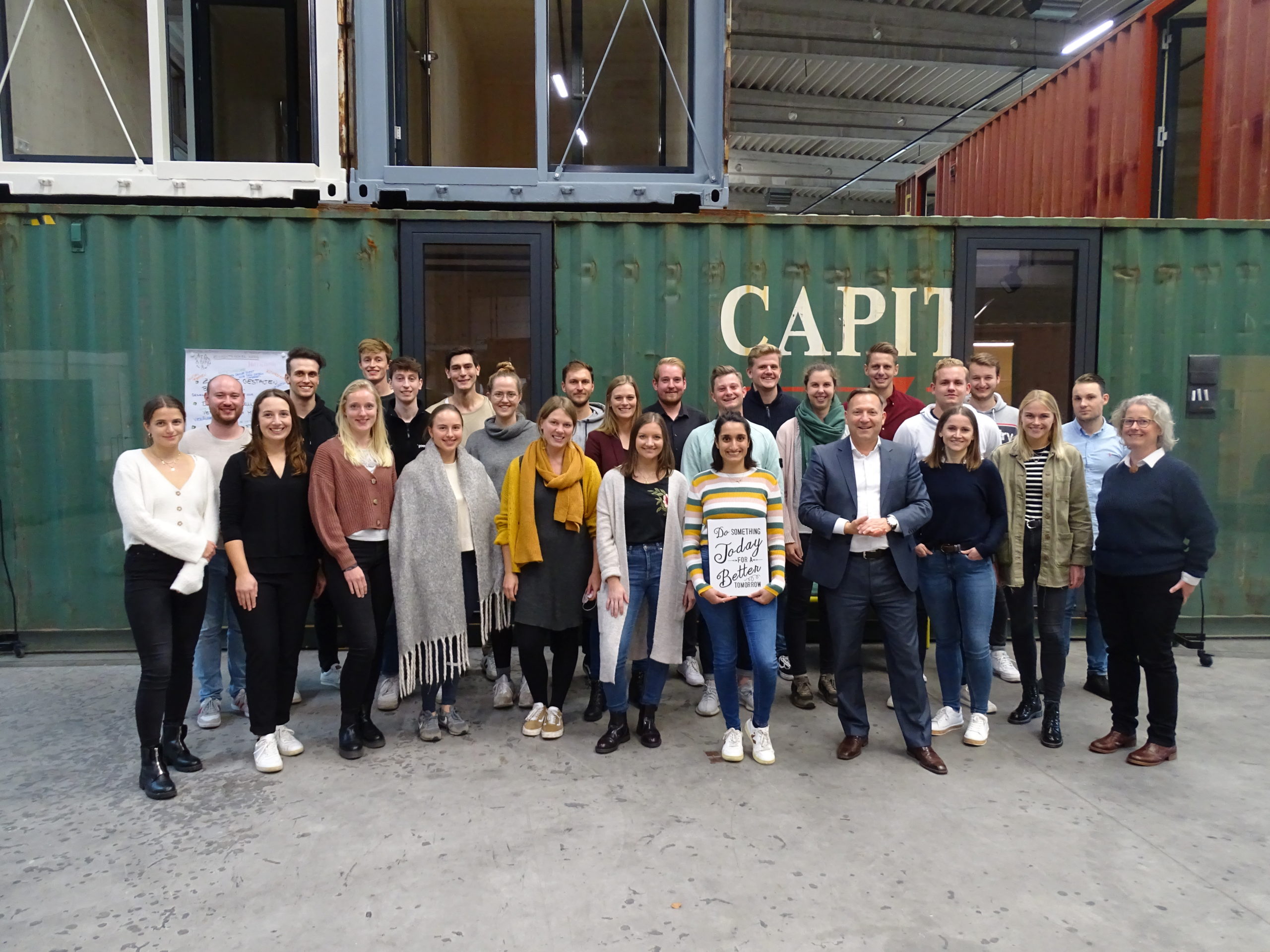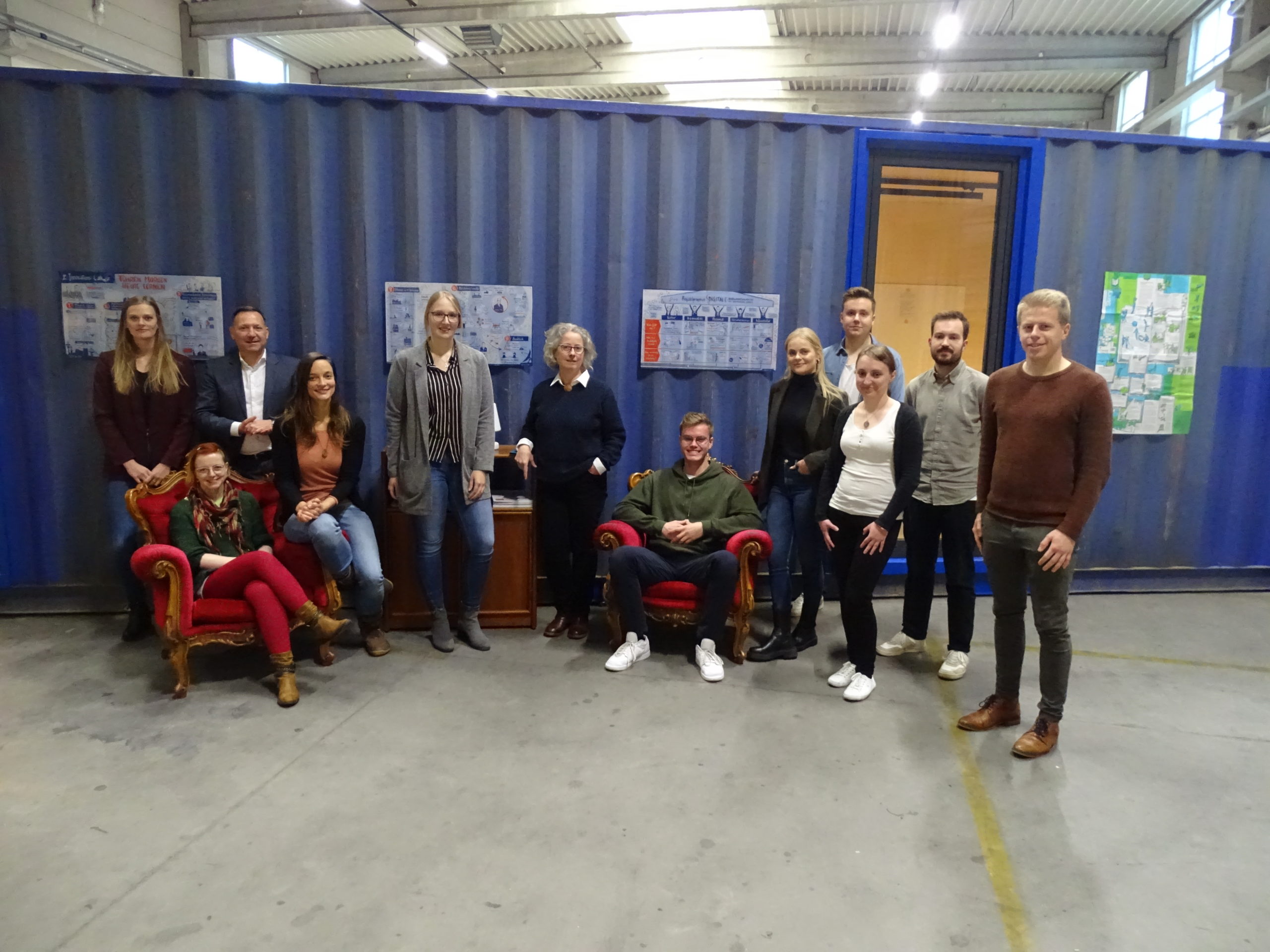"We are convinced that by putting business ideas in a wider context, we can support out-of-the-box thinking": Anne Seela, University of Oldenburg
Why did you decide to include challenge-based learning in your curriculum?
Anne Seela: Well, I am a teaching team member in the module ‘Sustainable Venturing’ at University of Oldenburg. In this module – it was introduced in 2009 by Prof Klaus Fichter and Prof Alexander Nicolai – the collaboration with business partners and students always has been core. So, entrepreneurs bring in either a specific sustainability-oriented innovation idea or a sustainability-related problem which requires an innovative solution. The latter can be coined a ‘challenge’. The concept of challenge-based learning describes and frames best what students encounter. Based on a real innovation idea or sustainability challenge, they generate ideas and develop them further and assess them in regard to economic viability and environmental and social impact. In all courses, students enjoy working in this practical way and help to bring these sustainable ideas to the market. We are also convinced that by putting the business idea in a wider context, we can support out-of-the box thinking.
What has your experience been like?
Anne Seela: Challenges are challenging. More challenging than simple problem-based learning (which we had employed when we first introduced the course). Students are demanded to deal with bigger uncertainty and a ‘VUCA’ situation. VUCA stands for ‘Volatility, Uncertainty, Complexity and Ambiguity’. Thus, students need to answer questions like “How to interpret the conditions?”, “Would the idea or suggestion for a solution meet the customers’ needs?”, “Are the ideas environmentally sustainable?”. We could observe that students sometimes are a bit confused and need some time until their project plan is ready to go.
From my point of view, this is part of the learning process as well. Since 2019, we ask students to fill in a self-assessment questionnaire on Sustainable Entrepreneurship Competencies. We found that especially in the field of “system thinking competencies” and “strategic competencies” significant competence developments seem to happen. Unfortunately, we don’t have data that was collected before the course started. However, I am convinced that there is a correlation with challenge-based learning.
As academic staff, what exactly is your role in the challenge-based module?
Anne Seela: I see myself as organiser and mentor. Before the challenge can start, we have to find interesting business partners and suitable sustainability challenges. That means constantly scanning the community to build up good networks, contacting and convincing interesting entrepreneurs and finally, forming a good challenge – one that is highly relevant for the business partner, fits into the course topic and is demanding but doable for our students.
Within the teaching team – we are three to four lecturers from two different chairs – we plan the respective procedure and provide supporting materials. As mentor I am responsible for supporting the class in organisational matters. I also coach teams of students during their individual project phase.
How do you facilitate your students’ learning and development processes during challenges?
Anne Seela: There are two very important points for me. On the one hand, there needs to be a good structure of the course, a (pre-)selection of suitable methods and tools to deal with the challenges. We are always discussing in the team (and together with the students) how to improve this part of the course.
On the other hand, there is the coaching process. As coach I am responsible for keeping the things ongoing. So, I am not as deeply involved in the topic as my student groups are, but I help with knowledge about tools and methods, I give courage in the face of difficulties and I am there to help, should any conflict with the business partner occur.
“Universities are educating the change agents of tomorrow. This requires a good mixture of learning approaches. Challenge-based learning definitely brings a lot of fun for students, lecturers and business partners and accelerates sustainable business ideas.” – Anne Seela
In your view, what are the advantages of taking up challenge-based learning formats in comparison to research-, problem- or project-based learning?
Anne Seela: Well, some aspects I have already mentioned. It’s always crucial to define a good challenge which has the potential to bring about sustainable advantages and is doable for the students. It should be as wide and open as possible and as concrete as necessary.
Moreover, with regard to the challenge concept, the business partners should be prepared for the fact that the solutions the students come up with could be unexpected. I think that in problem- or project-based learning, the ‘right’ solutions are more pre-defined though not in detail. Challenge-based learning as we understand it in our concept is more a depiction of the requirements that students are faced with after their graduation.
How to best ensure successful university-business collaboration in sustainable venturing challenges?
Anne Seela: The basis for successful cooperation is good communication between all stakeholders. It is crucial for collaboration to know and deal with the expectations of all groups. Course guidelines before the challenge as well as regular feedback sessions during the challenge help to ensure a good process.
How relevant for the future is challenge-based learning and cooperation between universities and companies, in your opinion?
Anne Seela: While society is facing enormous global challenges, universities are educating the change agents of tomorrow. Therefore, it is logical that besides their scientific learning, students are already confronted with global challenges in an educational setting. Although challenge-based learning doesn’t necessarily include cooperation with companies, it brings a huge benefit into the challenge. It is not only the practical relevance, students also need to learn to work with people from different disciplines, to understand the technical side of a product or process and also to present their results to non-business educated persons, address issues of sustainability to different business units and so on.
I would like to add another aspect. Sustainability-related problems are mostly global and can’t be solved by single local solutions. So, it would be great to organise challenge-based learning formats also on an international level to give students the possibility to learn in an intercultural setting. That’s what we are going to implement during a new EU-funded project from this year on.
Would you recommend other university staff to take up challenge-based learning into their curricula, and if so, why?
Anne Seela: I do not want to play off one format against the other. A good mixture of learning approaches is needed at university. However, if it fits into the learning objectives of a curriculum and if there is enough capacity to organise and support challenges, it definitely brings a lot of fun for students, lecturers and business partners and accelerates sustainable business ideas.
As capacity (with regard to time and finances) is crucial when it comes to collaborating with companies, it would be great if support structures at university or even regional level could be developed. Such support structures could help with networking and matchmaking and multiply the effect of student-business collaboration linked with challenge-based learning.

powered by ScaleUp4Sustainability
Carl von Ossietzky University of Oldenburg
Department of Business Administration, Economics and Law
Adj. Prof. Innovation Management and Sustainability
Ammerländer Heerstr. 114-118, 26129 Oldenburg, Germany
Legal notice and data protection

The platform was created as part of the ScaleUp4Sustainability project. ScaleUp4Sustainability (Project Reference: 601150-EPP-1-2018-1-DE-EPPKA2-KA) is funded by the Erasmus+/Knowledge Alliance Programme of the European Union.



